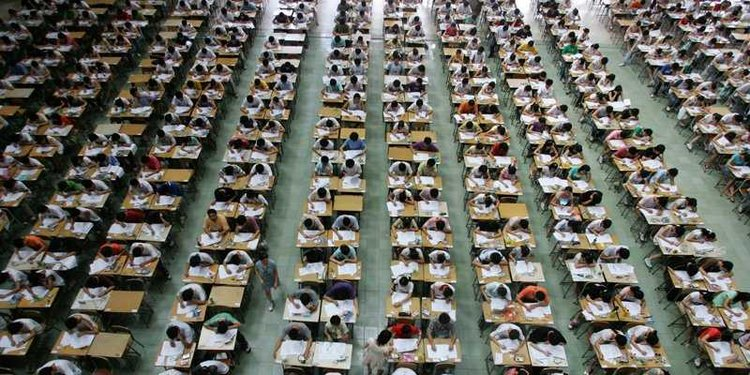1. 不善始者不善终 (Bú shànshǐzhě bù shànzhōng) “A Bad Beginning Makes a Bad Ending.”
“不善始者不善终” reflects the importance of education in big cities like Shanghai and Beijing. Yes, parents want the best for their children. So, the foundation is key. A bad beginning leads to a bad ending. Similarly, if you start off with a great foundation for your education, success is easier.
In China, popular TV shows like “Tiger Mom” 《虎妈猫爸》 and “A Little Reunion” 《小欢喜》, show the lengths that Chinese parents will go to give their kids a great foundation. Everything from moving to a good school district to extra tutoring is common.
The logic: a good school = good foundation = good college = good job and secure future.
The show “Tiger Mom” portrays the fierce competition to get children into top-tier elementary schools. During the application process, children take intelligence tests and the parents undergo interviews. In cities like Shanghai parents' IQ is a factor for admission.
The lesson: as you start the new school year, make your moves early. Prep for your classes, get to know your new teachers, read your syllabi, and buckle down.

2. 种瓜得瓜, 种豆得豆 (Zhòngguā dé guā, zhòngdòu dé dòu): “You Reap What You Sow”
Chinese culture values hard work. The evidence: the numerous Chinese proverbs that say Chinese culture values hard work.
One theory: in Malcolm Gladwell's Outliers, he theorizes that this culture stems from rice paddy farming. When you farm, the harder you work, the bigger the harvest. In modern China, this value applies to education.
After the regular school day has ended, millions of Chinese kids attend prep programs for Math, English, Science, etc. Chinese students also attend pre-class and post-class self-study sessions.
The lesson: In the U.S., schools aren't open late at night or super early in the morning. However, you can set aside a productive environment to study and put in extra hours for subjects that you find most difficult. Don't be afraid to ask for help.
3. 机不可失,时不再来 (Jī bùkě shī, shí búzài lái): Opportunity Comes Only Once
In China, years of education builds up to one defining moment: the Gaokao. Similar to the SATs, students take the Gaokao in June of their senior year of high school.
In the U.S., the SAT is only one of many determining factors in the admission process. American colleges take a holistic approach when considering applicants. An applicant's extracurricular activities, GPA, and personal essays are equally as important.

[zombify_post]


0 Comments